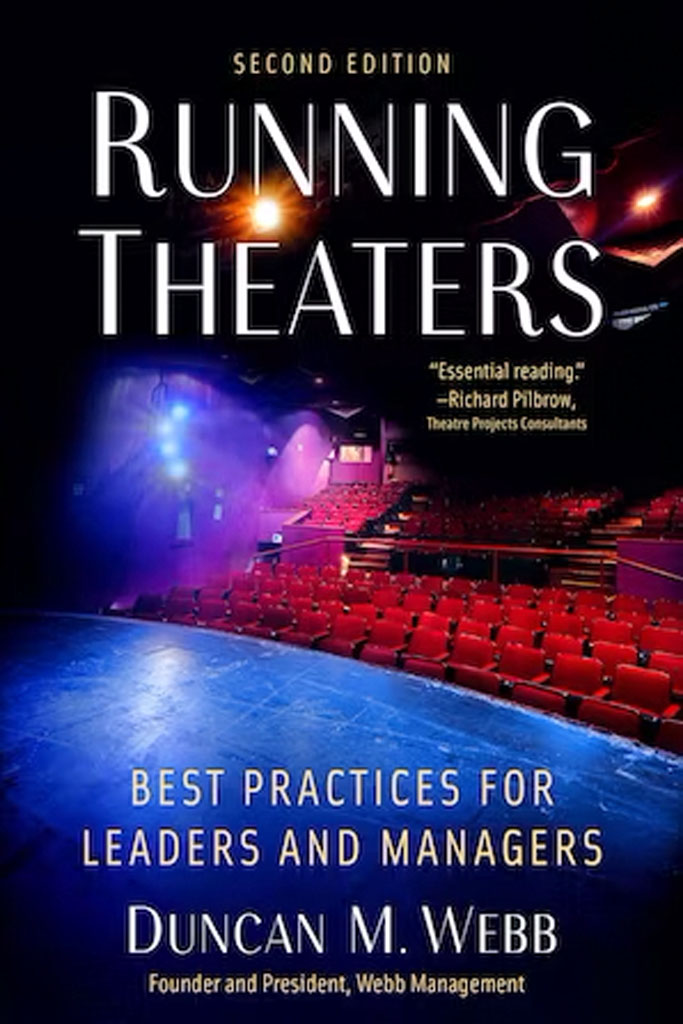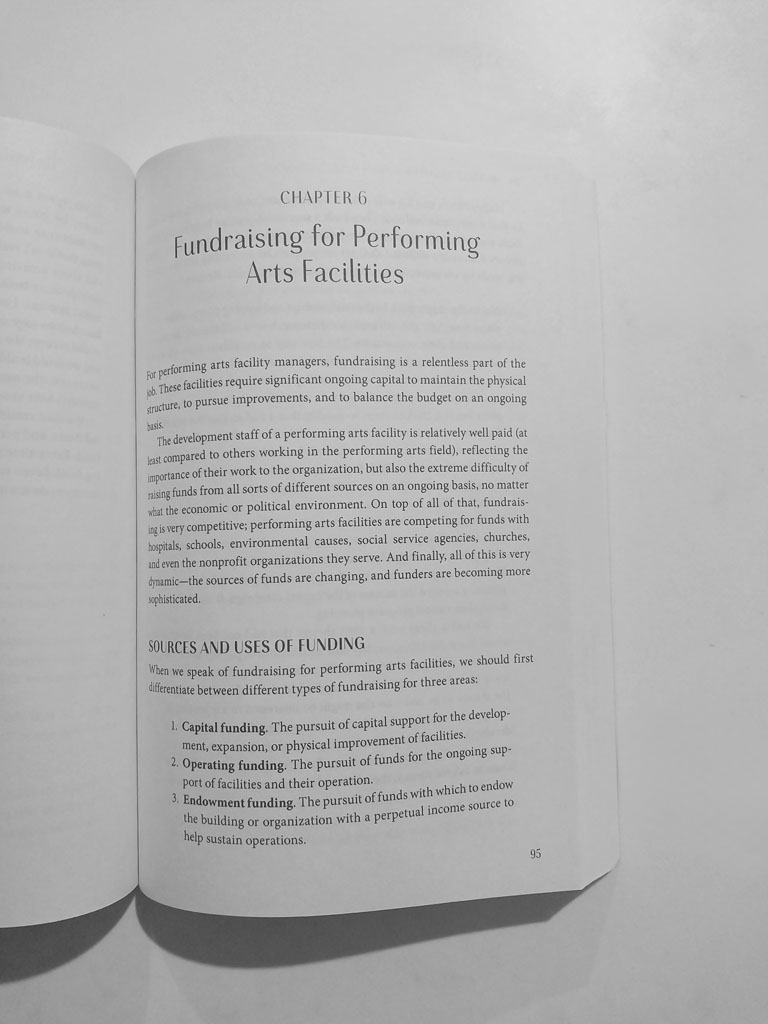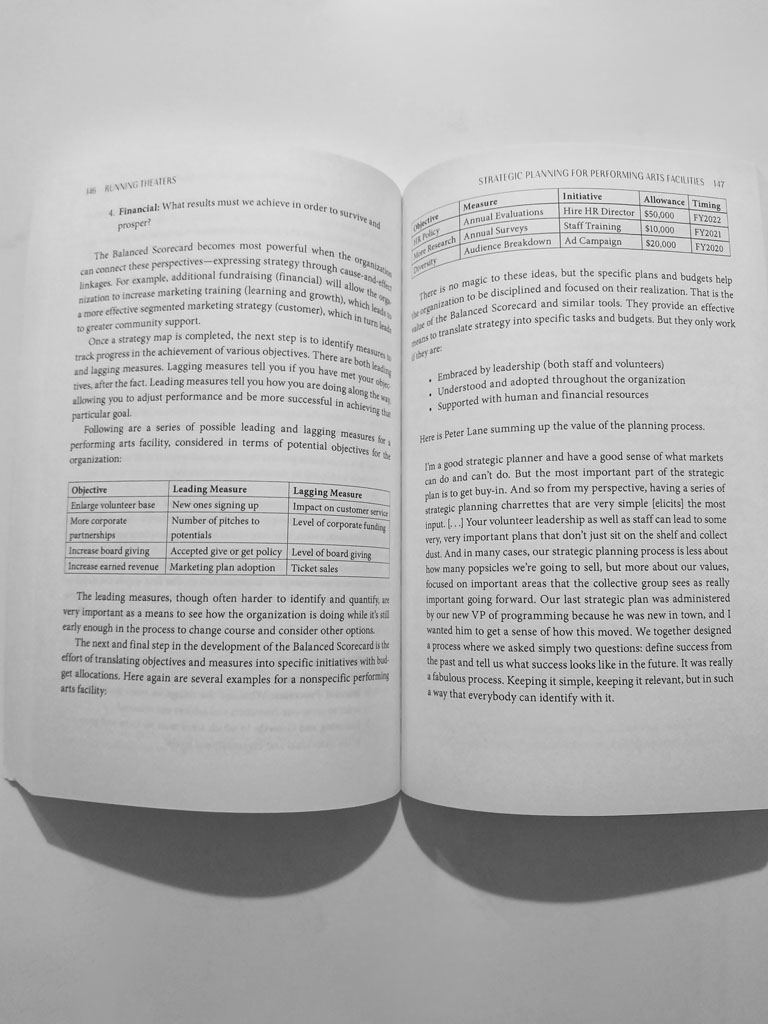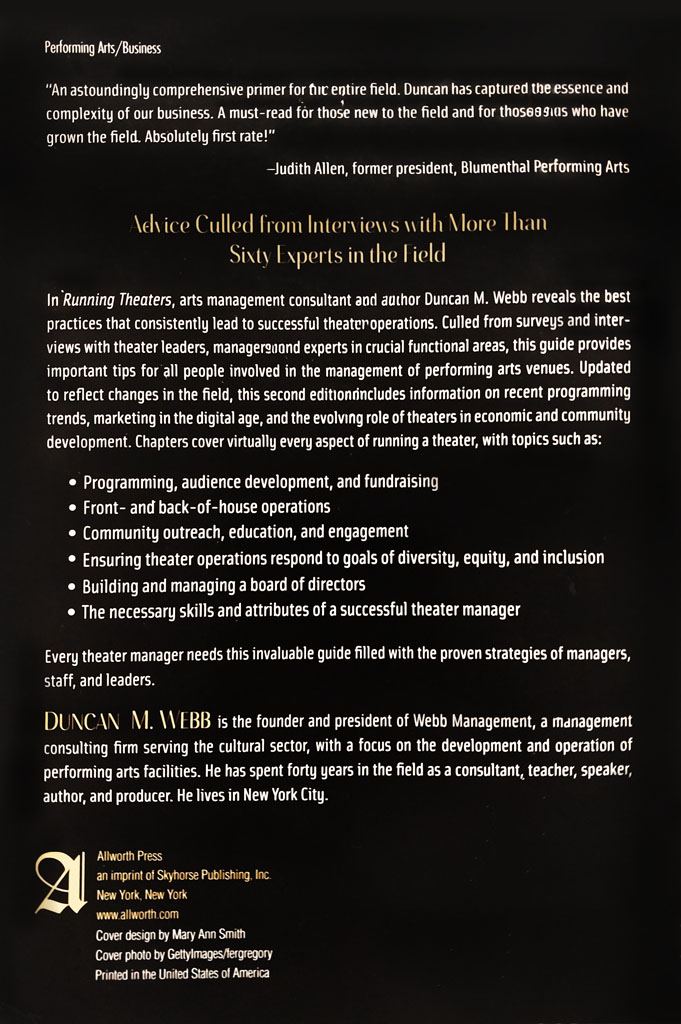REVIEW
13 Feb 2024
Running Theatres Second Edition

Subscribe to CX E-News
If you think you could do with a few tips on how to run a theatre, this book will keep you turning the page, and fill in a few blind spots you didn’t know you had.
ABOUT THE BOOK
Running Theatres is a tome all about the ins and outs of running a theatre – hence the name. Much of its content is derived from interviews, conversations and surveys involving several influential theatre managers and other related industry experts.
This is the book’s second edition, published in 2020. The first edition of it came out back in 2005.
Its author, Duncan M. Webb covers a vast amount of ground in this 15-chapter book. Some of the highlights include facility operations, programming, financial management, audience development and board development.
The book identifies and discusses concepts, ideas and practices that lead to the best real-world results when it comes to theatre operations, including, but not limited to, all its various technical aspects.
At 288 pages, Running Theatres is by no means encyclopaedic in scope, but there’s a lot of information to digest.
“Nothing is more important in a theatre than getting the lights on the marquee and a show on the stage.”

WHO IS THE BOOK FOR?
Running Theatres is squarely aimed at theatre managers, technical or otherwise, or anyone who sits on the board of a theatre company, including anybody with a theatre management role or senior position involving the day-to- day running of a theatre or live entertainment venue. Any stakeholder to a theatre such as investors and educators may also derive benefit from reading this book. It would also be a highly beneficial read for any student studying to be a theatre manager.
“The execution of strategy is often a greater challenge than the development of strategy.”
Running Theatres draws upon the expertise of several influential theatre managers and seasoned industry experts. Although it’s technically written by a single individual, the book nevertheless contains dozens of expert opinions and working practices. These multiple perspectives make the book less exposed to ‘blind spots’ that a single author may inevitably possess. Its breadth of perspective is similarly wider than that of any single author.
Having said that, while the book indeed covers a lot of ground and does it well, there are some areas where it occasionally lacks depth. One such area is around the subject of financial management. Given its importance to a theatre – without which a theatre’s doors would eventually close – perhaps more space could have been dedicated to discussing ways to sell, market and position a theatre. A topic such as stakeholder management, or similar, could also have done with its own dedicated chapter, rather than be sprinkled throughout the book. A theatre manager inevitably wears a lot of hats and is bound to encounter political angst at some point. Navigating these treacherous waters is vital to any theatre manager’s long-term success.

VERDICT
Running Theatres is a fascinating book written by someone who does this kind of work (theatre consulting) for a living. Webb’s credibility is further enhanced by his extensive list of contacts, who collectively serve as a ringing endorsement by adding their own experiences to the book’s compelling pages.
Running Theatres offers something different. It’s presented in a format that keeps you from growing weary of the subject, as too many textbooks are known to do. This is no textbook. It’s essentially a guidebook about running a successful theatre, as told by numerous industry experts, and based on decades of real-life experience. It’s organised neatly into 15 chapter topics and distilled down into a coherent 288-page book.
It’s not written as a sequential user manual, featuring dot points and footnotes, but it’s a gold mine of experience and wisdom nonetheless – perfect for its intended audience. Everyone involved in running a theatre should read this book at least once.
“Understanding performing arts audiences and predicting their behaviour is a significant challenge.”

Scoreboard
Readability: 6
The book is well written, highly informative and entertaining. Considering the book was pulled together largely from interviews, it holds together quite well. Similar books of this nature often read as disjointed and confusing. It’s not a quick read, but it’s well worth the journey; a book some readers will likely open repeatedly.
Supporting Materials: 9
In this case, the supporting materials – interviews and surveys – are essentially the backbone of this entire book. More traditional methods of providing supporting materials, such as graphs, charts and diagrams are largely non-existent in this book.
Relevance: 8
Although the book was originally written almost two decades ago now, this second edition remains highly relevant. And while Running Theatres is written by a US author with overseas contributors, mainly from the United States, UK and Europe, the book remains highly relevant to Australians and New Zealanders. Some of its practices also apply to live entertainment venues such as conference halls, convention centres and stadiums.
Usefulness: 7
A useful book, yes, although I don’t think it’s one that you would use as reference material at work. Running Theatres is the kind of book you would read cover to cover in a few sittings and occasionally re-read as a refresher if you were earning a living in a related role.
Value for Money: 8 ($41.90: Amazon)
At just over $40.00, Running Theatres is respectable value for a 288-page book, especially when you consider how much work has gone into the construction of its pages. If you’re tasked with running a theatre and need a little guidance or direction, this book would prove invaluable.
Total: 38 = 4 Stars
ABOUT THE AUTHOR
Duncan M. Webb is the founder and president of Webb Management Services, a management consulting firm serving the arts and cultural industries. Duncan is a management consultant to people who build and operate theatres. He has spent 40 years in the field as a consultant, teacher, speaker, author, and producer. He lives in New York City.
Subscribe
Published monthly since 1991, our famous AV industry magazine is free for download or pay for print. Subscribers also receive CX News, our free weekly email with the latest industry news and jobs.






